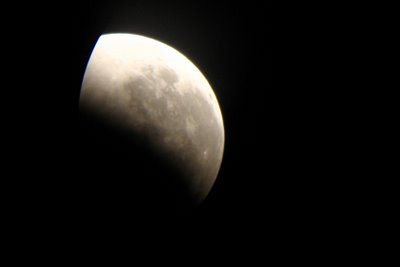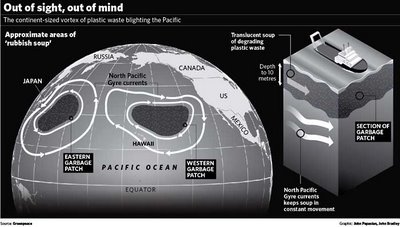Every now and then I come across a bad science article. And I come across badly done science with disturbing regularity — but today I found both in an article at NewScience.com.
It’s a “study” about why people believe “crazy” things like creationism and intelligent design. The authors of both the article and the study have barely bothered to mask their contempt and disdain for those who believe in anything other than cold, hard science.
But the science and written logic they bring to the table can be described as mushy branflakes at best. Check out the article and see if you can taste the bias. Here’s a sampler:
People continued to agree with false teleological statements, particularly those that endorsed an Earth intended for life.
I was not aware the debate over the beginning of our world was settled. Good to know you can administer a simple true/false test and call people who believe the earth was made for life “wrong”.
This is supposed to be science? It seems to be based on more assumptions than religion! [new readers: I don’t believe in religion, but I don’t believe evolution’s reality settles the debate over our origins -v]
Either they’re trying to use trick questions or they don’t understand the nuance of language. This, for instance, is one of their “false” statements:
Mites live on skin to consume dead skin cells
Well… don’t they? The mites are better off living there than anywhere else. Where else would mites rather be?
The supposed scientists may have been grasping for “Mites exist only to remove our dead skin cells” but they utterly failed. And these people are claiming to be able to accurately and fairly judge me, my logical abilities and the validity of my beliefs??!!
Reminds me of this, more accurate, study.
This is also shoddy, biased journalism. I expect more from a mainstream publication like NewScience. Pro-atheism cheerleading is fine and good, but there’s a time and a place, just like we expect reporters to keep their Christian, Hindu or whatever views out of newscasts, we should expect the journalists over at NewScience and other consumer science outlets to do the same.
This is not an article so much as an attack on teleological thought, a legitimate philosophy of thought. Here’s what Wikipedia currently says about teleology:
A teleological school of thought is one that holds all things to be designed for or directed toward a final result, that there is an inherent purpose or final cause for all that exists.
As a school of thought it can be contrasted with metaphysical naturalism, which views nature as having no design or purpose. Teleology would say that a person has eyes because he has the need of eyesight (form following function), while naturalism would say that a person has sight because he has eyes (function following form).
A classic debate. Y vs. X and yet these supposed scientists are ready to throw telelogical thought under the bus without even investigating whether it might be right. Instead they’ve decided to do a sort of test to see if you think like a commie–..uh, er… “teleologist” in the hopes of one day “curing” it.
A first round of experiments suggested that adults make more teleological mistakes when pressed for time than when not. Yet Kelemen and Rosset also noticed that no matter how much time they had, test subjects tended to endorse false statements implying that the Earth is designed and maintained for life. [emphasis mine]
This is some of the most biased reporting I’ve ever seen, but it could be Ewen Callaway is just regurgitating what he was told. Then it would piss-poor reporting. But even more offensive to me as a rational person is the implicit goal laid bare in this study, which is clearly to find a way to eradicate teleological thought.
That’s the same kind of thinking that led to the Spanish Inquisition. We don’t need any more of that crap. These “scientists” need to learn how to take on their ideological opponents in an intellectual field of battle and quit trying to find ways to cow the populace into submission. If they have proof that the teleological school of thought is wrong, then they should firstly present it, then defend it.
Instead they use mouthpieces like NewScience, which I thought was a reputable publication, but now seems to be nothing more than a bloodbath battlefield between believers and nonbelievers. Here are some recent articles (among the most popular):
- How to spot a hidden religious agenda
- Born believers: How your brain creates God
- How to stop creationism gaining a hold in Islam
I guess it’s all about the page-views and contentious article bring in visitors galore. But then why not try and keep an editorially even hand and write balanced articles? There’s a good reason spiritually-minded folks often sound defensive in those forums. They know they’re being taunted — or else they wouldn’t be there, trying to explain deeply held beliefs to this generation’s most vicious nihilists.
What’s even more disturbing is that the atheists rarely stand up and say, “Hey, I agree, but let’s keep things respectful and balanced here.” Opinion Editor Amanda Gefter is particularly over-the-top. Here’s a typical passage:
Misguided interpretations of quantum physics are a classic hallmark of pseudoscience, usually of the New Age variety, but some religious groups are now appealing to aspects of quantum weirdness to account for free will. Beware: this is nonsense.
Free will has been debated for many millennia, but dear old Amanda won’t let us even consider the possibility that… what, quantum physics might be involved somehow? How the hell does she know? She clearly doesn’t because she chose ridicule over reason and neglected to back up her claims. If I print out the Wikipedia article on Free Will, it’s over 20 pages, but Ms. Gefter dismisses it with a warning: Beware!! Don’t read any further or you might turn into a commi- er, I mean “creationist!”
This is all about attacking the philosophical underpinnings of the opponents of strong-atheism, whom include religious folks, anti-religion/pro-metaphysics people like me, and many agnostics and weak-atheists.
It’s sad that people can’t find any common ground on this issue. It’s one of the most pressing of our times, especially with the growt
h of atheism in the young and urban. But it’s still a religious discussion and I remain somewhat aghast that a publication like NewScience would stoop to taking sides in the culture wars. Are they about to fold and need every page-view they can get?
I’d be more likely to read them in the future if they displayed a little more objectivity.
As for the “scientists” who are out to “cure” creationists or anybody who entertains metaphysical thoughts, well, I guess we’d better keep our eyes on them before they try to beat Religion’s high score in the killing game. Studying ways to eradicate thought that doesn’t conform with the scientific establishment’s is really beyond the pale.
I don’t think most atheists think this way. Certainly there is some bitterness about Christianity, the dominant religion in my culture, but few would actually seek to destroy it. They just don’t want fundamentalist Christians (like those that infested the Bush administration) enforcing prayer in schools, Intelligent Design in schools (ID should be in schools — the Philosophy Department) and various faith-based activities.
Totally understandable. But let’s make sure that we don’t end up with the mirror image as humanity gives up its superstitious beliefs. We don’t need fundamentalist atheists running amok any more than we need fundamentalist Muslims or Christians in charge. The extremists are the problem, and they hurt whichever side they are arguing for. Please, people, look for common ground in the culture wars!
Go in peace / Science be praised
 Filed Under :
Filed Under :  Mar.3,2009
Mar.3,2009 This post currently has
no screeches.
This post currently has
no screeches.





 Tags :
Tags : 



Pretty well-reasoned, I thought. But I definitely want to challenge some of his assertions. Here is my response:
My apologies for the confusion over the water-diety. I didn’t make it clear, but I was referring to something similar to a water elemental — basically a spirit that is infused with one of the four elements (water is a compound, of course, but it’s also one of the classical elements), Fire, Earth, Air and Water (the Chinese add a 5th: Metal). It’s probably not a very good analogy since it’s completely hypothetical and imaginary, at least as far as science is concerned.
I grasp the stamp hobby analogy just fine. It’s a poor analogy, though, which you seem unable to grasp. Here’s why:
Collecting is an activity. Philately is a hobby. However, you could still be a philatelist and not actually collect anything. How? By knowing a heck of a lot about stamps, that’s how. Philately is the study of stamps, not the act of collecting them. You could be an expert in stamp lore without actually having a collection or wanting one.
Actually, maybe the analogy is not so poor, since once you learn how faulty it is you might be able to understand how atheism could be considered a religion. Of course, this does depend on semantics to an extent.
An extremely simple definition of religion is this: “A religion is a set of common beliefs and practices generally held by a group of people.” Boom. You hold beliefs in common with other atheists (you refuse to worship “known” gods) and your practices are also similar in that you refuse to attend worship services (I assume. Personally, I make exceptions for weddings and funerals, but I don’t “worship”). It may be negative, but that doesn’t mean you can’t group it under religion.
For example, you’ve already admitted that atheism is a philosophy. Would you also consider it a theological perception? Just because the content of your theological perception attacks the underlying structure of most other theologies and even theism itself, that does not stop it from being classified as some form of theological outlook. Do they study atheism in theology classes? In many cases, yes (there might be some bias in many of them, of course).
As for dogma, yes I consider the lack of belief in gods to be a dogma among atheists. If someone claimed to be atheist, but continually made shrines to Buddha would you consider him a “real” atheist?
To take it even further, have you ever heard “The first rule is that there are no rules.” Is that a rule? Sure seems like it to me, even though its singular act is to bar all other rules. It may be recursive, negative and contradictory… But it’s still a rule.
Also, if you knew more about theology you’d know that there are several religions that are nontheist. They generally don’t deny the existence of gods, they just aren’t concerned with them, and don’t take a stance on them either way. Confucianism and other eastern religions are a perfect example. For this reason, many people like to call them philosophies rather than faiths or religions, but this is another semantic argument, one that is caused by the overwhelming prevalence of Christianity in the weltanschauung of westerners.
If you consider ritual a necessary part of the definition of religion, consider the scientific method. It’s also a dogma of sorts, and it prescribes a methodology for discovering and verifying knowledge in such a way as it will be acceptable to others in the sci
entific community. In much the same way that a priest prepares to consecrate bread and wine, a dutiful scientist will prepare for an experiment by controlling for variables and making predictions (hypotheses) before the experiment-ritual itself is performed.
As for proceeding from the assumption of the null hypothesis, that’s your business. It’s certainly a good idea in science, but in matters of faith things are not so cut and dried.
Also, please note that I am not calling you a religious person by stating atheism could be considered a religion. I’m just pointing out that atheism is quite similar to other religions, and as it grows there is a risk that it could be seized and exploited by charlatans. I believe there was a South Park episode about this. I am also sure you would see through the bullshit and hopefully refrain from any atheistic fundamentalism, but just remember that there are a lot of stupid people out there. In fact, some people are dumb as fuck!
Even as I’m drawing religion and science together, surely you’ll concede there is much that separates them. The problem is that the scientific method is not known to work for the business of discovering gods. I believe Scott Adams once compared this folly to using a metal detector to check for unicorns in one’s sock drawer. The fact of the matter is, we haven’t discovered a “god” (definitively, based on the scientific method) so how can we say we’re using the best tools for the job?
Perhaps a new method is called for. Of course, if I knew that method I’d present you with solid proof of the existence of god(s). But you could easily reject it by saying my method does not adhere to the principles of the scientific method. But what if my method was better, at least for discovering and identifying divine beings?
A question to ponder: Have your placed your faith in the scientific method?